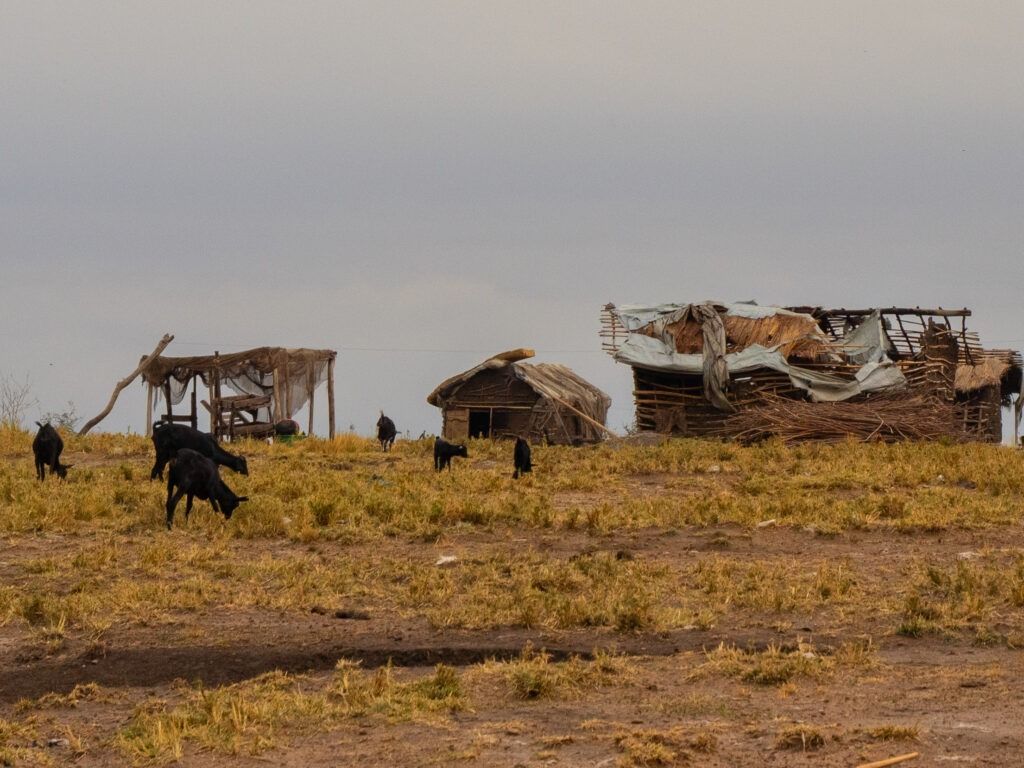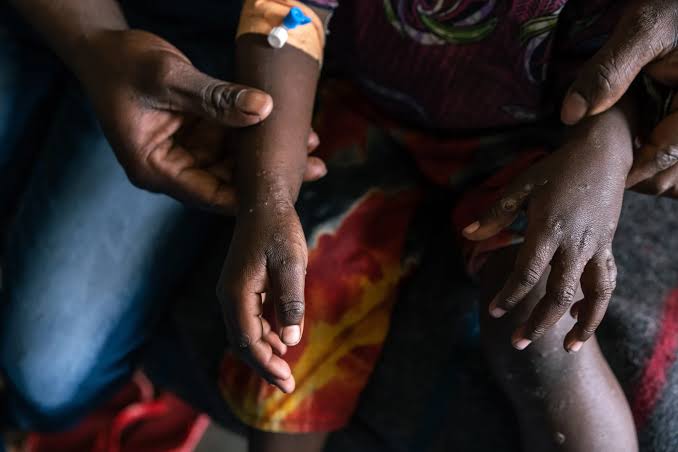Metro
Uganda files lawsuit to remove property owners obstructing a regional pipeline
Published
5 months agoon

Due to low-value payments, absentee landlords, and a complicated land ownership system in some areas of the country, Uganda’s government has begun a legal battle with 112 landowners who the East African Crude Oil Pipeline (Eacop) is set to displace.
As a result, a Ugandan court will on Monday hear a case in which the government has sued eighty individuals, attempting to force them off their land in three districts within the Greater Masaka region along the Eacop route. The developers of these districts are rushing to meet the deadlines for the nation to begin exporting oil that year.
Two related instances involving landowners from the Hoima and Kyankwanzi districts this week were also heard. These districts are a part of the 296 km Eacop length in Uganda, where at least 32 absentee landowners and others who rejected low-value compensation pose a serious delay.
The 112 cases “under consideration for compulsory land acquisition due to issues such as untraceable individuals, landowner disputes, refusal of compensation offers, and lack of legal title,” according to Energy Minister Ruth Nankabirwa, were recognised last month in a media conference in Kampala.
With early civil works nearly finished, Eacop officials told journalists that the project is approaching a vital stage to begin laying the pipeline.
In addition to the six pump stations and the twelve main camp people yards (MCPYs) that are now under construction, the coating facility in Tanzania was put into service in March and 700 km of line pipe have already been sent there.
“Early civil works are ongoing in both Uganda and Tanzania,” Ms Nankabirwa said.
“In Uganda, work has been completed at three of the five MCPYs located in Hoima, Kakumiro, and Sembabule districts, while work continues at the MCPYs in Mubende and Kyotera districts.”
However, on the Ugandan side of the corridor—the shorter one—the pace of clearing the 1,443 km Eacop route has been slower and fraught with disputes; just 96% of project-affected individuals (PAPs) in Uganda have received compensation, compared to 99% in Tanzania.
In Uganda, the pipeline corridor includes 2,740 acres over 296km and has 3,660 PAPs. In Tanzania, the pipeline corridor covers 10,081 acres over 1,147km and has 9904 eligible persons for compensation.
Some of the impacted parties, who were sued for not having legal standing or a representative to handle their families’ compensation, have attributed their problems to NewPlan, the company that was contracted to carry out the Eacop resettlement action plan, as the hearing for these lawsuits aimed at evicting the landowners gets underway.
For example, Sarah Namatovu claims that after the rightful landowner passed away, her family was sued for not having a legal representative or letters of administration to the estate. The resettlement action plan contractor pledged to pursue the processing of a death certificate to comply with this requirement.
“NewPlan came to our home in 2018 and informed us that the death certificate we have was not fit for purpose. This is because the certificate was not issued by the National Identification and Registration Authority,” she explained.
“NewPlan promised to support us to acquire the right death certificate so that we could process letters of administration and get compensation, but they never did. The next thing we heard is that we had been sued because we rejected compensation, yet we did not.”
As the hearing for these lawsuits aimed at evicting the landowners begins, some of the affected parties—who were sued for lacking legal standing or a representative to handle their families’ compensation—have attributed their problems to NewPlan, the company hired to carry out the Eacop resettlement action plan.
For instance, Sarah Namatovu asserts that her family was sued for failing to have letters of administration to the estate or a legal agent following the death of the legitimate landowner. To meet this criterion, the resettlement action plan contractor promised to seek the processing of a death certificate.
When NewPlan visited our house in 2018, they told us that the death certificate we had was not valid. She said, “This is because the National Identity and Registration Authority did not issue the certificate.
“The affected estates are those under the Succession Register in Buganda Kingdom. Matters relating to those estates are supposed to be administered by the kingdom,” he said, adding that because of that directive, it has been difficult for some people in Buganda to obtain certificates of no objection from the office of the Administrator-General to process letters of administration.
You may like
-


Facebook returns to Uganda after 4-year ban
-


Court orders Uganda to compensate LRA war crimes victims
-


Ugandan football fan shot dead while celebrating Arsenal win over Man U
-


Death toll in deadly Uganda landslides rises to 20
-


Kenya, Uganda to mediate in Ethiopia-Somalia feud
-


Hackers stole $17 million from Uganda National Bank— Report
Metro
‘Don’t start what you can’t finish’, ex-Nigerian official replies President Tchiani
Published
1 month agoon
December 29, 2024
Former Nigerian Aviation Minister, Femi Fani-Kayode, has told President Abdourahamane Tchiani of Niger Republic to refrain from making infantile and puerile allegations that Nigeria is conniving with France and the Lakurawa terrorists to destabilize his country.
Tchiani had, during an interview with Radio-Télévision du Niger on December 25, accused the Nigerian government of using the sect, with the help of foreign security forces notably from France, to wreck havoc in his country, insinuating that President Bola Tinubu had been paid by the France government to allow their military to establish a base in Borno State.
He also alleged that Nigeria, acting in collaboration with the French government and the terrorist group, was responsible for an attack on the Niger-Benin oil pipeline on December 13, 2024, in Gaya, Dosso Region of Niger Republic.
But in a statement he posted on his official X handle on Sunday, Fani-Kayode who is popularly called FFK, said Nigeria does not need the help of France and thr Lakurawa terrorist to destabilize Niger Republic.
FFK insisted that Nigeria is not part of the western powers sponsoring terrorists organizations to wretch havoc on the West African sub region.
“If Nigeria wanted to destabilise Niger Republic, I do not believe that we would need France or any terrorist organisation to do so,” the politician wrote.
He noted that on the contrary, western powers are the ones behind terrorist organizations operating in the region and other parts of Africa.
“I have maintained that the western powers are behind the terrorist groups that have plagued the West African sub region over the last 15 years and for the last ten years I have publicly stated this and given my reasons.
“I am equally certain that Nigeria, being one of the major victims of these terrorist organisations, has had no part in it and that no Nigerian President, past or present, has indulged in such grave and dangerous actions.”
He went on to advice Tchiani against provoking Nigeria with unguarded and infantile utterances capable of stoking Nigeria against his country.
“The Nigerien Military Head of State, Abdourahamane Tchiani, would do well to be careful not to provoke our wrath with his absurd assertions and remain mindful of the fact that the defence budget for his country, Mali and Burkina Faso COMBINED is not up to 25% of Nigeria’s.
“Tchiani’s grave allegations that President Tinubu and NSA Nuhu Ribadu have been bought by the French to destabilise Niger Republic, that our Government is jointly sponsoring a terrorist group with France to do same and that there are French military bases in Nigeria are infantile, puerile, mendacious and asinine.
“It is a squalid attempt by the Nigerien Head of State to sow the seeds of dissention in our country, to alienate our people from constituted authority, to divide our people and to undermine the Tinubu administration,” he added.
“It is also highly provocative and the FG should consider the possibility of taking other more extreeme measures if this reckless provocation continues.
“We are under no obligation to show restraint when we are being undermined and maligned.
Metro
Zambia announces second case of Mpox as country battles cholera outbreak
Published
1 month agoon
December 28, 2024
The Zambian Ministry of Health has reported a second case of Monkeypox, popularly known as Mpox, in Kitwe region of Copperbelt Province.
Acting Health Minister, Douglas Syakalima, who made the announcement on Friday during a press conference in Lusaka, revealed that the Ministry is intensifying contact tracing and surveillance to curb further spread of the disease.
Syakalima who also addressed the ongoing cholera outbreak in Nakonde, Muchinga Province, said thus far, seven cases have been confirmed.
“The second Mpox case involves a 34-year-old female from Ndeke, Kitwe, who presented with symptoms including rash, fever, swollen lymph nodes, and oral ulcers on December 21,” Syakalima said at the press parley.
He noted that there was an initial misdiagnosis with chickenpox in Lumwana, North-Western Province, but laboratory tests on December 26 confirmed that it was Mpox.
Syakalima added that the patient’s husband, who works in a neighboring country with confirmed Mpox cases, had experienced similar symptoms earlier this month.
“Both patients are now stable and under close monitoring. A rapid response team has been deployed to trace contacts and prevent further spread,” he said, adding that eight close contacts of the couple are currently under observation, while nationwide surveillance has been heightened.
The Health Minister added that on December 26, five cholera cases were confirmed at Nakonde Urban Clinic with the first three patients, a husband, wife, and their son, admitted on December 24 with symptoms of diarrhea, vomiting, dehydration, and shock.
“Today, two more cases have been reported, bringing the total to seven confirmed cholera cases from the same household,” Syakalima stated.
He explained that Nakonde’s location as a border town with high cross-border movement poses a risk for the disease to spread to other parts of the country.
The Minister however, assured that the Ministry has deployed teams to trace contacts, chlorinate water sources, disinfect affected homes, and activate Incident Management Systems at district and provincial levels while surveillance has been heightened, and contact tracing is ongoing for 33 individuals.
“The government remains committed to preventing further spread of these diseases,” Syakalima assured.
EDITOR’S PICK


Nigeria: Marketers predict further price cut as another refinery begins operations
Oil marketers and the Nigerian Midstream and Downstream Petroleum Regulatory Authority expect refined petroleum product prices to reduce as another...


Kenya: Consumer inflation rises to 3.0% from 2.8%
Kenya’s statistics agency said on Tuesday that Kenya’s consumer price inflation increased slightly to 3.0% year-over-year in December from 2.8%...


South Africa’s Transnet’s half-year deficit hits $117m
Transnet, a state-owned logistics company in South Africa, announced on Tuesday that it had lost 2.2 billion rand ($117.48 million)...


Nigeria, China extend $2bn currency swap deal
A 15 billion yuan ($2 billion) currency-swap arrangement between China and Nigeria has been extended to boost investment and commerce...


Egypt’s central bank maintains overnight rates
As anticipated, Egypt’s central bank has maintained its overnight interest rates, stating that although inflation was predicted to drop significantly...


Illicit flows cost Nigeria, others $1.6bn daily— AfDB
According to the African Development Bank (AfDB), illicit money flows and profit shifting by multinational corporations doing business in Africa...


‘Don’t start what you can’t finish’, ex-Nigerian official replies President Tchiani
Former Nigerian Aviation Minister, Femi Fani-Kayode, has told President Abdourahamane Tchiani of Niger Republic to refrain from making infantile and...


Again, Starlink raises prices of its services in Nigeria
Elon Musk’s satellite internet service provider, Starlink, has again jacked up the prices of its services in Nigeria after an...


Former President of Moroccan club Raja sentenced to 3 years in prison
The former President of Moroccan top club, Raja Casablanca, Mohamed Aouzal, has been sentenced to three and a half years...


Zambia announces second case of Mpox as country battles cholera outbreak
The Zambian Ministry of Health has reported a second case of Monkeypox, popularly known as Mpox, in Kitwe region of...


